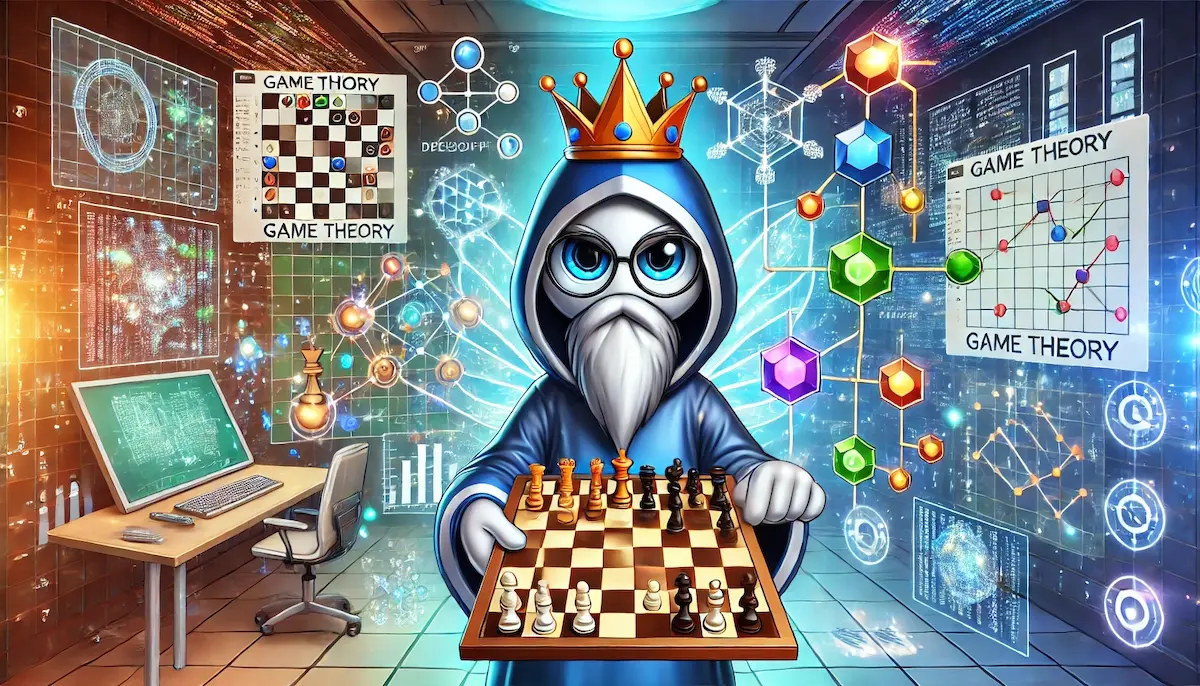Game theory is a branch of mathematics and economics that studies strategic interactions between individuals or groups, known as players, who make decisions to maximize their own benefits. These interactions often involve conflicts of interest and cooperation, making game theory a powerful tool for analyzing and predicting the behavior of rational actors in competitive situations. Developed by mathematician John von Neumann and economist Oskar Morgenstern in the mid-20th century, game theory has since found applications across economics, political science, biology, and computer science.
Key Concepts in Game Theory
Players
Players are the decision-makers in a game. They can be individuals, groups, companies, or any entities capable of making strategic choices.
Strategies
A strategy is a plan of action a player follows to achieve their objectives. In game theory, a strategy can be a single decision or a comprehensive plan covering all possible scenarios in the game.
Payoffs
Payoffs represent the rewards or outcomes players receive based on the combination of their chosen strategies. The payoffs are usually quantified to facilitate comparison and analysis.
Games
Games are structured scenarios in which players interact. They can be categorized based on the number of players, the nature of the strategies, and the information available to players. Common types of games include:
- Cooperative vs. Non-Cooperative Games: In cooperative games, players can form coalitions and negotiate shared strategies, while in non-cooperative games, players make decisions independently.
- Zero-Sum vs. Non-Zero-Sum Games: In zero-sum games, one player’s gain is another player’s loss. In non-zero-sum games, players can achieve mutual benefits or losses.
- Simultaneous vs. Sequential Games: In simultaneous games, players make decisions at the same time without knowing the others’ choices. In sequential games, players make decisions in turns, with some knowledge of previous actions.
Nash Equilibrium
Named after mathematician John Nash, a Nash equilibrium is a situation in which no player can improve their payoff by unilaterally changing their strategy, assuming all other players keep their strategies unchanged. Nash equilibrium represents a stable state where players’ strategies are optimal given the strategies of others.
Famous Examples in Game Theory
The Prisoner’s Dilemma
The Prisoner’s Dilemma is a classic example of a non-cooperative game involving two players. Each player can either cooperate or defect. The dilemma demonstrates how rational players might fail to cooperate even when it is in their best interest:
- If both prisoners cooperate (stay silent), they receive a moderate punishment.
- If one defects (betrays) while the other cooperates, the defector goes free while the cooperator receives a severe punishment.
- If both defect, they receive a harsh punishment, but less severe than if only one had cooperated.
The Ultimatum Game
In the Ultimatum Game, one player (the proposer) offers a division of a sum of money to another player (the responder). The responder can accept or reject the offer. If the offer is rejected, neither player receives anything. The game explores notions of fairness and rationality, often revealing that people may reject unfair offers even at a cost to themselves.
The Hawk-Dove Game
The Hawk-Dove Game, also known as the Chicken Game, models conflict and competition. Players can choose between aggressive (hawk) and peaceful (dove) strategies. The game illustrates how conflict can lead to a stalemate or resolution depending on the strategies chosen, with applications in evolutionary biology and international relations.
Applications of Game Theory
Economics
Game theory is widely used in economics to model market behavior, competition, and auctions. It helps analyze how firms set prices, how markets reach equilibrium, and how resources are allocated efficiently.
Political Science
In political science, game theory examines voting behavior, coalition formation, and international diplomacy. It aids in understanding strategic moves in elections, legislative negotiations, and conflict resolution.
Biology
Evolutionary game theory studies how organisms adopt strategies to survive and reproduce. It explains behaviors like cooperation, competition, and altruism in animal populations.
Computer Science
Game theory informs algorithms and artificial intelligence, particularly in multi-agent systems where autonomous entities must coordinate or compete. It enhances decision-making processes in areas like network security, automated trading, and machine learning.
Conclusion
Game theory provides a structured framework for analyzing strategic interactions in various fields. By understanding the principles of game theory, we can predict and influence behaviors in competitive and cooperative scenarios, leading to better decision-making and more efficient outcomes.
Blockfine thanks you for reading and hopes you found this article helpful.
